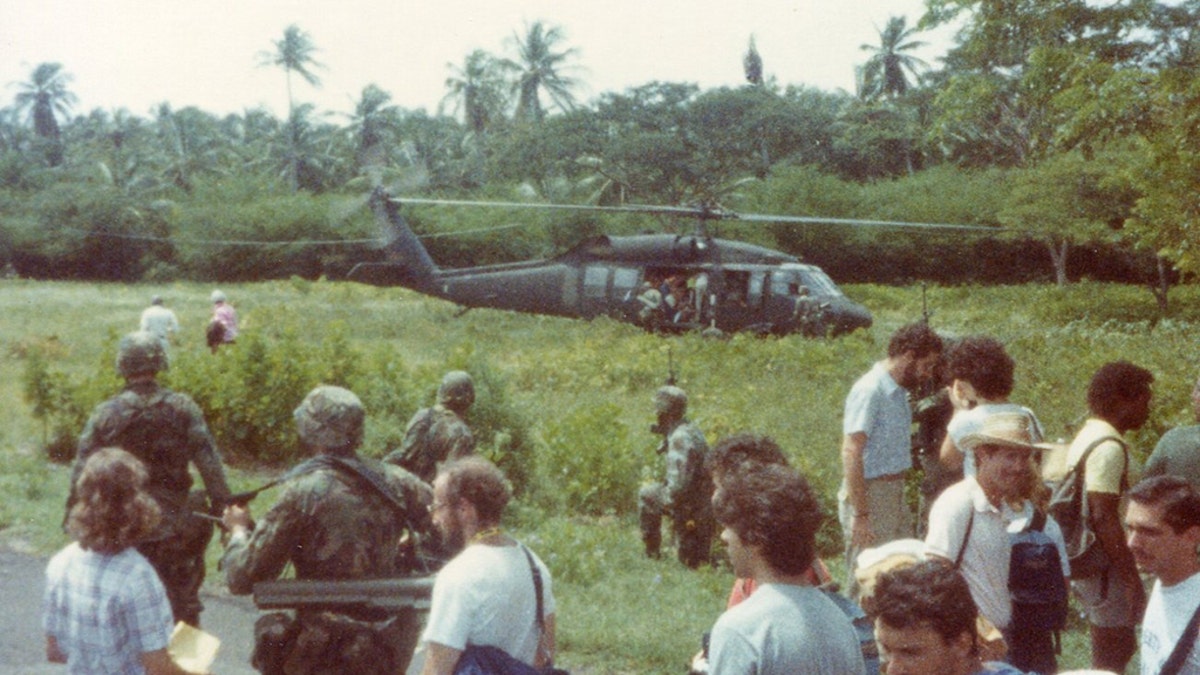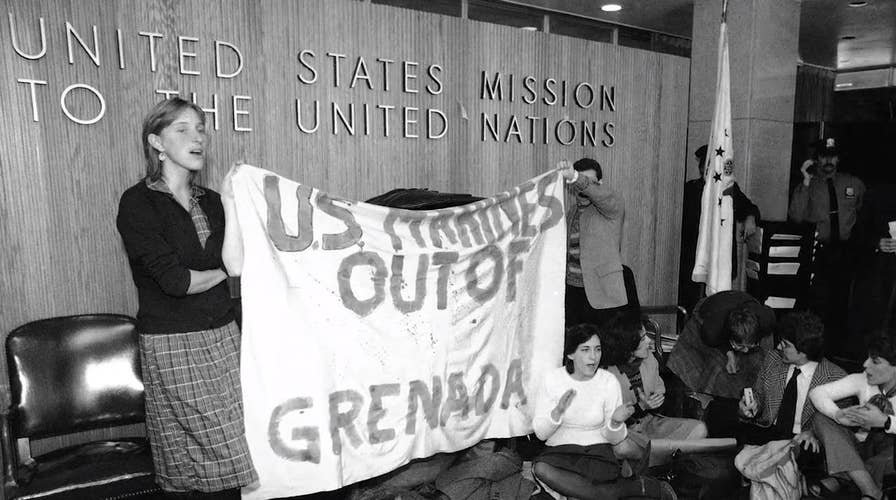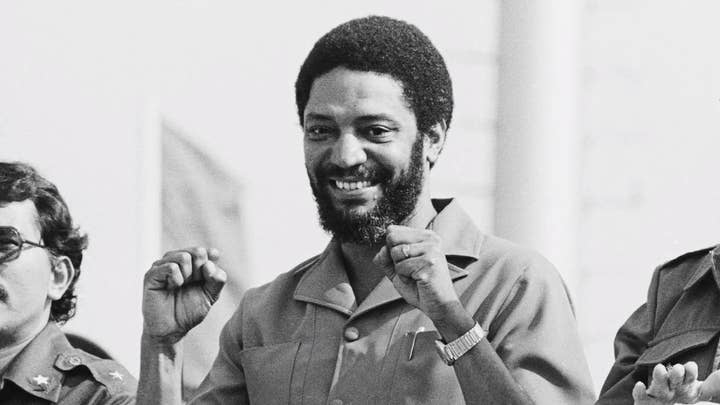On Nov. 11, 1983, seven House Democrats introduced a draft resolution to impeach President Ronald Reagan. They charged that the 40th president had committed a high crime or misdemeanor by "ordering the invasion of Grenada in violation of the Constitution," among other charges.
One of the sponsors of that resolution, Rep. Henry Gonzalez, D-Texas, later introduced another measure to impeach Reagan over his role in the Iran-Contra affair. Both efforts failed and have become nearly forgotten episodes of American history.
The new Fox Nation documentary "Reagan's Fury: Battle for Grenada" reexamines the invasion of Grenada in 1983, an event that is now celebrated by Grenadians as a day of liberation from the oppression of Marxist communism.
"When President Ronald Reagan took office, many Americans viewed communism as basically just another political system that the free world had to deal with and co-exist with," narrated Fox News chief political anchor, Bret Baier.
"But to Reagan," he continued, "the threat of the Soviet Union and others who spoke of worldwide Marxist revolution could not be ignored. Which is why he resolved to stand up to the aggression of Moscow and its satellites, leading to the first U.S. combat mission since the Vietnam War. Operation Urgent Fury in Grenada."
In 1974, Great Britain granted Grenada its independence, but by 1979 a Marxist revolutionary spirit sweeping through Central America and the Caribbean had reached the shores of the tiny island country, threatening its sovereignty.
Following a coup, the democratic government was overthrown and replaced by the one-party, totalitarian rule of Maurice Bishop.
"It was Bishop's ties to Cuba and the Soviet Union that alarmed President Reagan," said Baier in the Fox Nation documentary.
President Reagan raised alarm over a 10,000-foot runway being built on the island with money from the Soviet Union.
"Grenada doesn't even have an air force. Who is it intended for?" said President Reagan at the time. "The Soviet-Cuban militarization of Grenada, in short, can only be seen as power projection into the region," he noted.
Maurice Bishop himself was overthrown and executed by a pro-Soviet military regime several years after he seized power. Following Bishop's death and in consultation with leaders in the region, including Dominica's Prime Minister, who pleaded for U.S. help to stop the spread of Marxism, President Reagan decided to greenlight an invasion of Grenada on Oct. 25, 1983.
The operation would not go as smoothly as planned — 19 U.S. service members were killed and 116 were wounded.
Retired Lt. Gen. Jerry Boykin was a Delta Force operations officer at the time of the invasion and was wounded during the operation.
"We were taking heavy fire from the ground, from anti-aircraft guns that were actually hitting our helicopters," he told Fox Nation. "And then I got hit and I was hit pretty severely with a 50 caliber in the side of my chest and then up through my armpit."
Another concern for President Reagan and his military planners were the more than 600 American medical students living at St. George's University in Grenada.
Jim Brubaker, who was a student in Grenada in 1983, took pictures as the invasion unfolded.
"Somebody came up, I think, and a Jeep or a truck and let everybody know to start gathering," he remembered. "Black Hawk helicopters took us out to the airport. There was a C-141 aircraft and we all got loaded in and took off."

U.S. forces evacuating American students from Grenada in 1983 (James Brubaker)
Operation Urgent Fury was condemned by some on the international stage and inside the U.S.
"The United Nations Security Council passed a resolution, vetoed by the U.S., condemning Urgent Fury as a flagrant violation of international law," said Baier. "And some of President Reagan's domestic critics painted him as the villain of the Western Hemisphere. In fact, seven House Democrats even drafted an impeachment resolution."
However, the perception of the invasion by the inhabitants of Grenada was different at the time and it continues to be viewed in a positive light today.
"I must say that the support of the American government and people at the time after the intervention in Grenada, that was was quite substantial," said Keith Mitchell, who initially supported Grenada's Marxist revolution but quickly became disillusioned with it.
Today, Mitchell is the Prime Minister of Grenada. "We've seen a tremendous transformation in the quality of life of the people since [Operation Urgent Fury]... Nothing beats freedom. Freedom is fundamental."
To watch all of "Reagan's Fury: Battle for Grenada" go to Fox Nation and sign up today.
Fox Nation programs are viewable on-demand and from your mobile device app, but available only for Fox Nation subscribers. Go to Fox Nation to start a free trial and watch the extensive library from Tomi Lahren, Pete Hegseth, Abby Hornacek, Laura Ingraham, Greg Gutfeld, Judge Andrew Napolitano and many more of your favorite Fox News personalities.










































